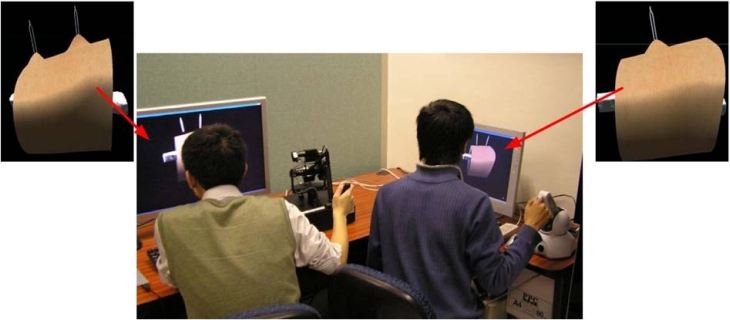Research on collaborative virtual environments (CVEs) opens the opportunity for simulating the cooperative work in surgical operations. It is however a challenging task to implement a high performance collaborative surgical simulation system because of the difficulty in maintaining state consistency with minimum network latencies, especially when sophisticated deformable models and haptics are involved. In this paper, an integrated framework using cluster-based hybrid network architecture is proposed to support collaborative virtual surgery. Multicast transmission is employed to transmit updated information among participants in order to reduce network latencies, while system consistency is maintained by an administrative server. Reliable multicast is implemented using distributed message acknowledgment based on cluster cooperation and sliding window technique. The robustness of the framework is guaranteed by the failure detection chain which enables smooth transition when participants join and leave the collaboration, including normal and involuntary leaving. Communication overhead is further reduced by implementing a number of management approaches such as computational policies and collaborative mechanisms. The feasibility of the proposed framework is demonstrated by successfully extending an existing standalone orthopedic surgery trainer into a collaborative simulation system. A series of experiments have been conducted to evaluate the system performance. The results demonstrate that the proposed framework is capable of supporting collaborative surgical simulation.

Selected Publication
- J. Qin, K.S. Choi, P.A. Heng. Collaborative Simulation of Soft-Tissue Deformation for Virtual Surgery Applications. Journal of Medical Systems, vol. 34, Number 3, June 2010, pp. 367-378. [Springer]
